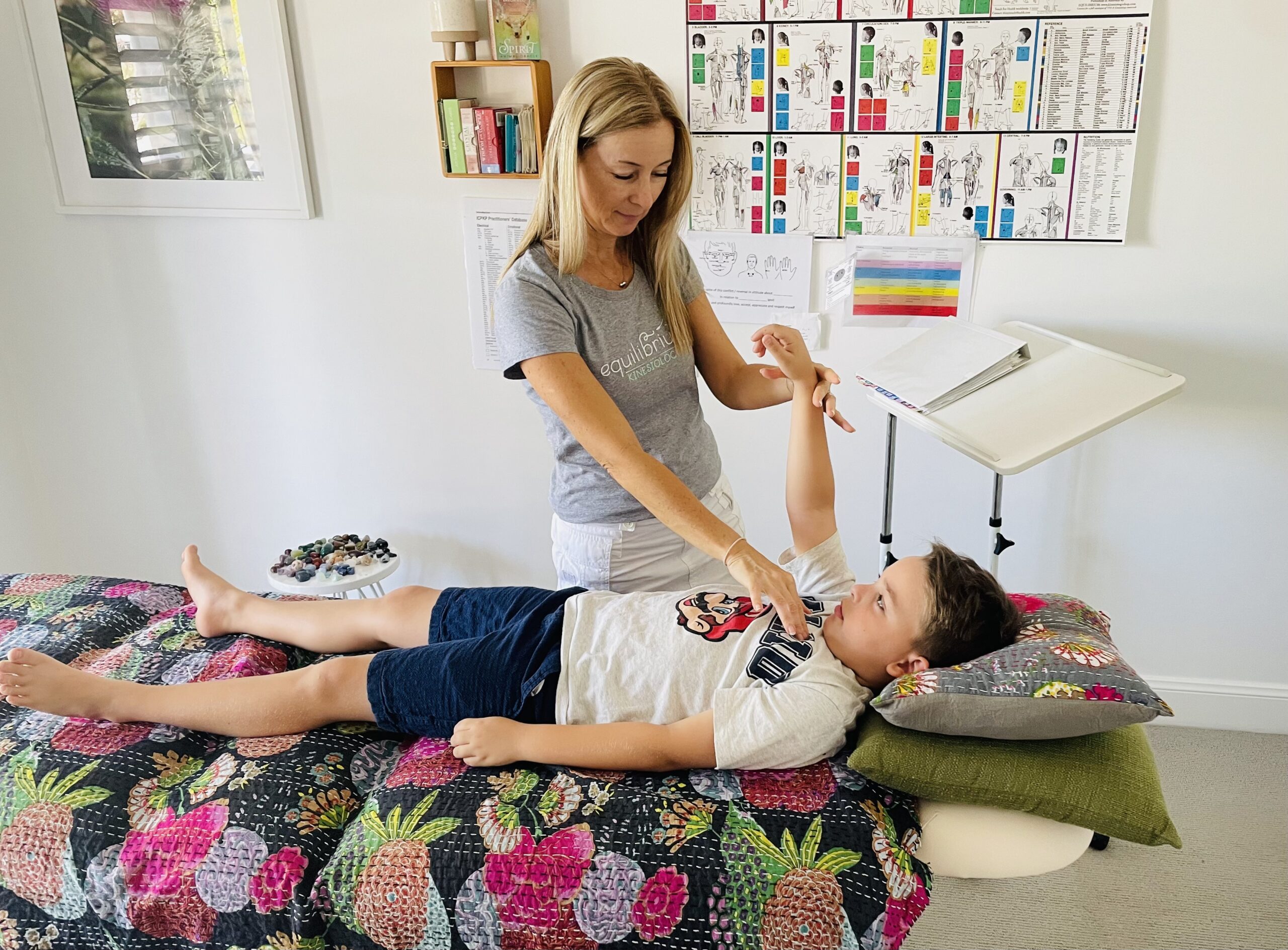Kinesiology 101…
Kinesiology 101
Kinesiology (pronounced kin-easy-ology) is a holistic natural therapy. It combines theories and knowledge from various modalities such as traditional Chinese medicine, physiotherapy, chiropractic, naturopathy and counselling.
What makes kinesiology unique is that it uses muscle monitoring/biofeedback to tailor each treatment specifically to you. A fundamental premise of kinesiology is that the body has innate healing energy and is at all times doing its best to care for and heal itself – sometimes it just needs a bit of help to achieve this.
I use painless manual muscle monitoring techniques to evaluate your body’s systems in relation to stress. The muscle response directs me to the root cause of the problem as well as to the correction/balance needed to assist resolving it.
‘Corrections/balances’ are generally a combination of western techniques and eastern wisdom i.e. it could be stimulation of pressure points, administering a flower essence or modifications to diet. The correction will assist in re-establishing effective pathways to bring the body, mind and energy into balance and harmony, thus facilitating physical, emotional and mental health.
What is manual muscle monitoring?
Manual muscle monitoring is done by the Kinesiologist placing a muscle into a specific position and applying light pressure. The muscle response provides an indication as to whether or not the body is holding stress in relation to the muscle, energy meridian or issue.
It is a simple and painless process and is a Kinesiologist’s main assessment tool.
What do you mean by stress?
Stress can be structural, chemical (nutrition), electrical (brain integration) or emotional in nature. When something is causing stress to the body the muscles will respond accordingly when monitored.
Traditional Chinese medicine principles state that ‘stress’ blocks the flow of energy or “Qi” (Chi) in and around the body. This subsequently affects the functioning of organs, glands, muscles and systems of the body which in turn affects overall health and wellbeing.
Stress may be conscious or unconscious and is often hidden under several layers. Dramatic changes can be seen once the causal layer is dealt with and resolved.
Kinesiology enables us to deal with multiple layers of stress to uncover and release the core layer, thereby freeing it or giving you and your body ways to manage and cope with it.
What can Kinesiology help with?
Kinesiology can assist in bringing the physical, mental, emotional, spiritual and social aspects of your being into alignment and balance. It can shift and clear old cell memories, patterns and emotional blocks before they manifest into illness or physical ailment.
It can assist with an incredibly broad range of issues such as:
· Anxiety and depression
· Managing and coping with stress
· Sleep, improving energy levels and motivation
· Self-esteem
· Learning difficulties, focus, concentration and co-ordination
· Pain relief and injury recovery
· Specific emotional issues – phobias, fear and abuse
· Weight loss
· Headaches
· Food sensitivities and allergies
· Hormone imbalances and fertility
· General well-being and health
Is kinesiology a form of medical treatment?
No. I don’t diagnose, treat or work with named diseases. You may have a medical issue however I will simply balance your body to put it in the best possible frame to utilise its own healing abilities to assist with that issue.
While Kinesiology can help with a wide range of health issues but you don’t need to be sick to benefit from it. It can assist you to make positive changes and improve your overall health and wellbeing in many different ways.
What is the difference between the various types of Kinesiology?
One major difference between the Kinesiology I practice and some others is the length of training. The Professional Kinesiology Practice (PKP) training I’ve completed is 3-4 years in length and involves many hours of study and homework with hands-on experience. Some kinesiology courses run over just a few months, or even weekends. Whilst these short courses are a great introduction and complement other forms of therapy, PKP Kinesiology is a complete therapy in itself.
Another difference is that PKP practitoners incorporate emotions into balances as clearing the related emotion can help the corrections hold much better and longer.
Is it safe?
Yes, kinesiology is a recognised natural therapy. It is completely safe with no negative side effects. It is fully guided by your muscles’ responses and is done in complete privacy.
Is kinesiology safe or beneficial for children?
Yes, I work with children and babies of all ages – even those in the womb! If your child is very young I may use you to assist with the balance via a technique called ‘surrogating’ whereby you or I will surrogate for your child and muscle test on their behalf. It is a safe and effective way of ensuring your child can receive the benefits of kinesiology as well.
Children can benefit from kinesiology in all the ways adults can. It’s highly beneficial for emotional problems such as anxiety, trauma and stress. It can also be particularly helpful if they’re having difficulty at school, with learning, concentration, comprehension, memory or any other aspect of school work, as well as social issues, anxiety or bullying. There are various techniques and exercises they can be taught and used to help them achieve their potential both in and out of the classroom.
Balances for children are $120 per session.


